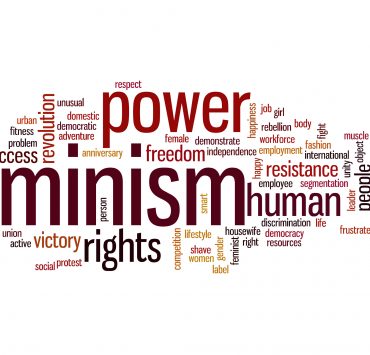When Laws Say Men’s Rights are NOT Human Rights

Men as well as women fall under the category of human beings, both men and women belong to the same species. Therefore, according to this logic, human rights should include the rights of men as well as women. But surprisingly enough, some laws in India as well as in other countries do not say so. A casual look at some such laws in India is enough to show that the law indeed does not consider men as humans.
Domestic violence laws
The present domestic violence laws in India do not recognize that men can be victims of domestic violence. Domestic violence is usually viewed by the society as something done by the husbands against wives. But the harsh reality remains that even wives commit acts of domestic violence against their husbands. In the month of June, 2020, the video of a wife in Kolkata beating her husband had gone viral in the social media. Besides, the Save Indian Family Foundation (SIFF), an NGO working for Men’s rights, have said that during the month of April 2020, as many as 1,774 men reached out to them alleging domestic violence by their spouse.
Many such cases go unreported due to several reasons. Men often feel stigmatized while talking about being victims of domestic violence. They would often get considered ‘unmanly’ if they confess that they are indeed victims of domestic violence. Such feelings often discourage them from coming out to seek help. Besides, there is also the fear of the woman using the gender biased domestic violence laws against the man even if she herself is the perpetrator of the violent act.
Child custody laws and visitation laws work against men
Acts like Guardians and Wards Act, 1890 and Hindu Minority and Guardianship Act, 1956 deal with child custody and visitation laws. Here too we can see that the laws are heavily biased. If the divorced wife wishes, she can stop the divorced husband from seeing his children for long periods of time. On top of this, he would legally be obliged to pay maintenance to the children even when he doesn’t get a chance to see them.
In India, the custody of the child is given to the father only if the mother in unstable or has opted to leave the home without the children. Such one sided laws need to be changed and replaced with ones which give preference to joint custody or shared parenting.
Gender biased rape laws in India
In India, section 375 of the Indian Penal Code deals with rape. It defines rape as “sexual intercourse with a woman against her will.” Nowhere in the Indian law does it say that men can be victims of rape. It says that men can only sodomise, not raped. It is to be noted that when the Central Government in 2012 tried to make rape laws gender neutral, the attempt was vehemently opposed by certain groups.
The existence of such laws obviously means that any male victim of rape would have little to no legal ways to get justice. Several incidents across the world have shown that men can get raped and that women can rape men.
Another issue which such laws create is the case of false rape accusations. In recent years, there has been a rise in the number of false rape accusations made against men. Delhi Commission of Women (DCW) had come up with a report in 2014 stating that more than half the rape cases filed between April 2013 and July 2014 the capital city were false ones. People who wish to settle personal scores or extort money from innocent males often use the tactic of filing false rape cases. The busting of several honey trap rings in India indeed proves this point.
Often, media do not highlight such reports probably due to the fear of backlash from certain groups who have vested interests.
When some people misuse the gender biased laws to a great extend, it shows that it is an important issue which needs to be tackled.
What needs to be done to change the situation
If certain laws in India are made gender neutral it would naturally mean that men would also get a chance at receiving justice.
Besides, once these laws are made gender neutral, it would also mean that they won’t get misused by anyone for their own selfish benefits. This would in turn save money and time for the judiciary. It is also to be noted that enacting stricter punishments against people who file false cases of domestic violence or rape would also deter them from making such cases in the future.
At the same time, the harsh criticisms which the Indian government had to face while trying to make gender neutral rape laws itself shows that it is not an easy task to bring about such changes.
Men’s Rights are also Human Rights
Even when governments, multinational corporations and society at large consider men as expendables, it remains a fact that men have as much rights as anybody else to be considered as humans. When several reports across the world show us that majority of suicide victims, majority of homeless people, majority of homicide victims etc. are all men, it is a pity that very few laws exist which safeguard the well-being and interests of men. In such an atmosphere, it is only a right thing to say that men’s rights are also human rights.


